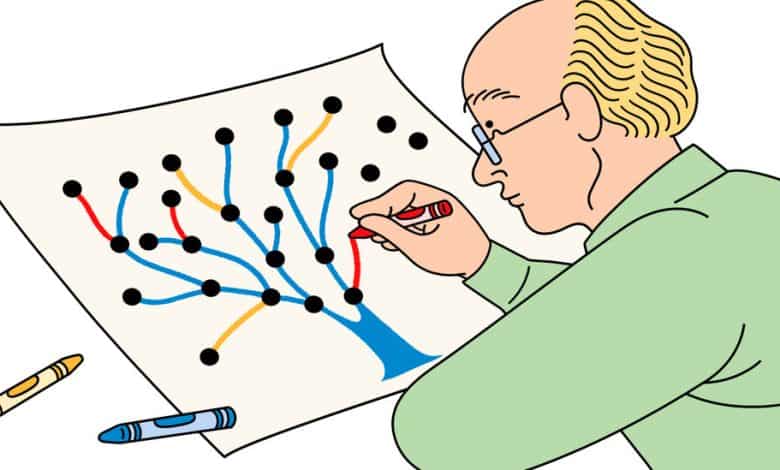I Keep the Family Tree — And I’m Flummoxed About Whom to Include.

I have taken over keeping my family tree. I am fortunate that this tree dates to the late 1700s. It means a large family, in many countries, with four generations of relatives still alive, some of whom I have never met or don’t know well.
During the course of this work, I found to my surprise that some of my relatives have adopted children. I have no objection to recording these children and their future offspring as family members, because that is how they are accepted within their immediate family. But because a family tree was once a record of the male bloodline, should I note that the child is adopted?
Second, a woman married to a family member has asked me to include her offspring from her first marriage. Her kids have no biological or adoptive connection to my relative, so I have turned down this request. I am torn between two impulses: On the one hand, I feel that this decision is overly harsh. On the other, I believe that I am honoring the purpose of recording a family lineage.
Third, some of my ancestors had what are sometimes called ‘‘outside children,’’ arising from extramarital interracial relationships toward the end of the 19th century. At the time, at least one of the fathers offered to publicly recognize
his parental responsibility and provide financial support. Several relatives who descend from these relationships are proud of their connection to our family, even though their parentage may be the result of racial and sexual domination of some kind. I am contemplating including them, which I would like to do without causing pain or offense. I am thinking of asking members of my generation how they would feel about being recognized as members of the family. If we are honest about the family lineage, they are as much a part of the family as I am. But I’m realizing that once this line is breached, there will be no going back. — Name Withheld
From the Ethicist:
A family tree is as much a cultural artifact as a biological one. Ideas about the configuration of a family vary across societies and over time. The Roman emperor Hadrian was succeeded by Antoninus Pius, his adopted son, who was succeeded by Marcus Aurelius and Lucius Verus, his adopted sons. Children born outside a marriage were sometimes acknowledged among the European aristocracy: Henry VIII’s son by his mistress Elizabeth Blount was given the family name of FitzRoy (derived from the French fils, ‘‘son,’’ and roi, ‘‘king’’).